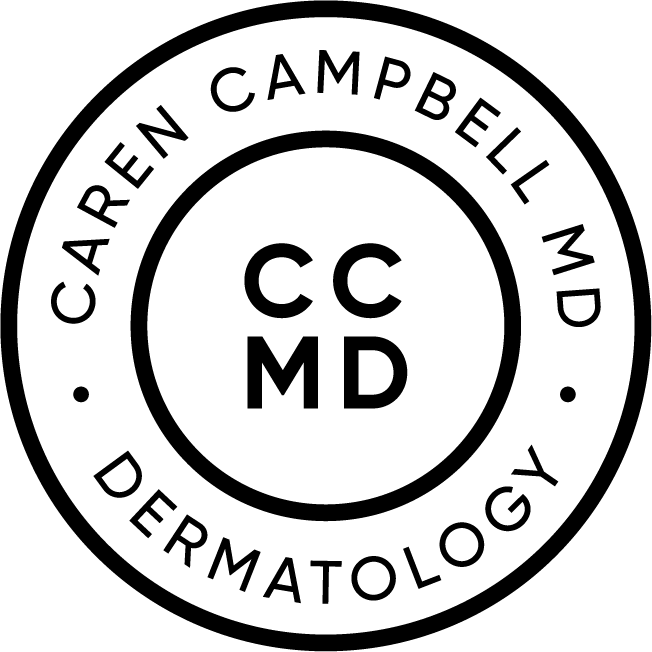The Power of Sulfur in Skincare: A Science-Backed Solution for Acne, Rosacea, and Pregnancy-Related Breakouts
When it comes to managing inflammatory skin conditions like acne, rosacea, and pregnancy-related acne, finding the right treatment can be a delicate balancing act. You need something powerful enough to reduce breakouts but gentle enough not to irritate already sensitive or inflamed skin. For many, sulfur is an underutilized hero in skincare. Backed by scientific research, sulfur offers anti-inflammatory, antibacterial, and antifungal benefits, making it an excellent option for those with acne, rosacea, or fungal acne, especially during pregnancy when skincare options are limited.
How Sulfur Treats Acne and Rosacea
Both acne and rosacea are characterized by inflammation, which leads to redness, swelling, and irritation. Sulfur’s primary function in skincare is to reduce this inflammation. It works by reducing excess oil, drying out the skin surface, and preventing pore clogging—three key factors in reducing acne and rosacea flares.
Evidence-Based Research:
A review published in the Journal of Drugs in Dermatology highlights sulfur’s role in managing acne and rosacea. The study emphasizes that sulfur possesses keratolytic and antibacterial properties, which help exfoliate the skin, reduce pore blockages, and combat bacteria that contribute to acne lesions . For rosacea, sulfur's anti-inflammatory effects have been shown to significantly reduce redness and pustules in those affected by this chronic condition .
Sulfur vs. Benzoyl Peroxide: Why It’s a Gentler Option
Benzoyl peroxide is a popular acne treatment, but it can cause dryness, irritation, and peeling, which makes it less suitable for those with sensitive skin or conditions like rosacea. Sulfur provides a gentler alternative while still addressing the underlying causes of acne.
Scientific Support:
A study published in the Journal of the American Academy of Dermatology demonstrated that while benzoyl peroxide is highly effective in reducing Propionibacterium acnes (P. acnes), it can also disrupt the skin’s barrier function, causing irritation, particularly in patients with sensitive or rosacea-prone skin . Conversely, sulfur has a milder impact on the skin barrier, offering anti-inflammatory and antibacterial benefits without the harsh side effects.
Additionally, sulfur’s efficacy in treating mild to moderate acne has been well-documented. Studies show that sulfur effectively reduces oil production and unclogs pores, which minimizes acne formation . Its gentler profile makes it a preferred choice for those who cannot tolerate benzoyl peroxide or other harsher treatments.
Sulfur’s Antifungal Properties: A Solution for Fungal Acne
Fungal acne, caused by an overgrowth of the yeast Malassezia, is often misdiagnosed as traditional acne due to its similar appearance. However, typical acne treatments, such as benzoyl peroxide or salicylic acid, don’t address the fungal component of the condition. Sulfur’s antifungal properties make it an ideal treatment for individuals who suspect fungal acne.
Clinical Findings:
A study from the Journal of Drugs in Dermatology confirmed sulfur's antifungal efficacy, particularly against Malassezia species, which are responsible for fungal acne. In the study, sulfur-based treatments showed significant improvement in patients with yeast-related skin issues . This makes sulfur a versatile option for treating not only bacterial acne but also fungal breakouts.
Sulfur and Pregnancy-Related Acne: A Safe and Effective Choice
Pregnancy-related acne is driven by hormonal changes that increase oil production and clog pores, leading to breakouts. However, many common acne treatments, such as retinoids and salicylic acid, are not recommended during pregnancy due to their potential risks to the developing fetus. Sulfur, on the other hand, is considered a safer alternative.
Research on Safety:
Sulfur is generally considered safe for use during pregnancy, as it poses minimal risk to both the mother and the baby . While all pregnant women should consult their healthcare provider before starting any new skincare regimen, sulfur offers a low-risk option for managing breakouts without harmful side effects.
Incorporating Sulfur into Your Skincare Routine
Sulfur is available in various forms, including cleansers, masks, and spot treatments. Here’s how to effectively incorporate it into your routine:
Spot Treatments: Ideal for targeting individual blemishes, sulfur-based spot treatments can quickly dry out acne without over-drying surrounding skin.
Cleansers: A sulfur cleanser is a gentle daily option for maintaining clear skin, especially for those with rosacea or pregnancy-related acne.
Masks: Sulfur masks can be used weekly to absorb excess oil and calm inflammation, helping to keep your skin balanced and clear.
Conclusion: Why Sulfur Should Be in Your Skincare Arsenal
For those dealing with acne, rosacea, pregnancy-related breakouts, or fungal acne, sulfur is a scientifically-backed, effective, and gentler alternative to harsher treatments like benzoyl peroxide. Its anti-inflammatory, antibacterial, and antifungal properties make it a versatile option that addresses multiple skin concerns. If you’re looking for a well-tolerated treatment that works across different types of acne and inflammation, sulfur might just be the skincare solution you’ve been searching for.
References:
Del Rosso JQ, Webster GF, Jackson M. "The use of sulfur in dermatologic conditions: old and new." J Drugs Dermatol. 2013;12(7):780-784.
Thiboutot DM, Zaenglein AL, et al. "Benzoyl Peroxide in Acne Treatment: Review of Current Literature and Future Directions." J Am Acad Dermatol. 2019;80(1):53-63.
Gupta AK, Versteeg SG. "Topical antifungal treatments in fungal acne: An Evidence-Based Overview." J Drugs Dermatol. 2016;15(6):641-645.
Baldwin HE, Harper JC, et al. "Acne Vulgaris: Treatment Considerations for Pregnant and Lactating Women." J Am Acad Dermatol. 2018;79(2):375-382.
